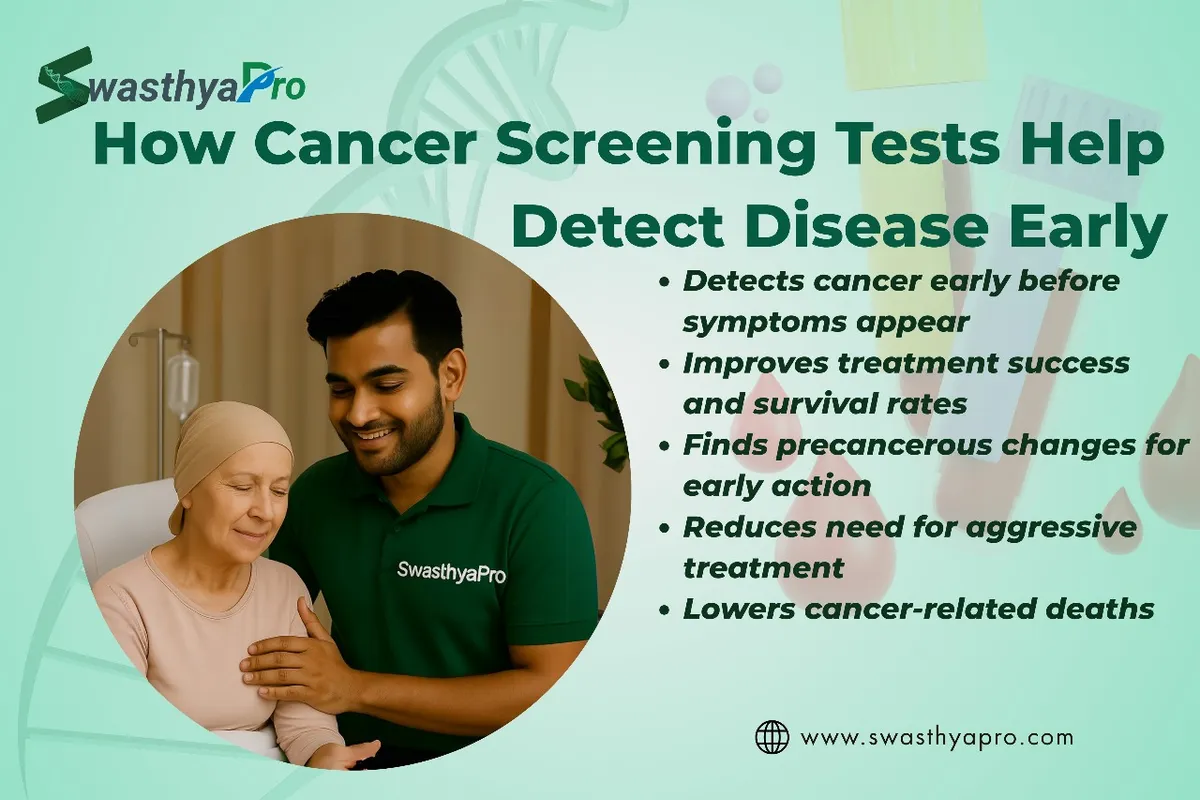Cancer screening test for Women: Essential Checks at Every Stage of Life

As women move through different stages of life — from their 20s to their 60s and beyond — their health needs change. One area that should never be overlooked is cancer prevention, and a key part of that is routine cancer screening test appointments.
Many cancers that affect women develop silently and slowly, often without symptoms until they’ve progressed. But when detected early, these diseases can be treated more effectively — and in many cases, completely cured.
In this guide, we’ll walk you through the most important cancer screening test recommendations for women at every age, so you can stay informed, empowered, and proactive about your health.
Why Women Need Regular cancer screening test Appointments
Certain types of cancer are biologically more common in women, including:
- Breast cancer
- Cervical cancer
- Ovarian cancer
- Uterine (endometrial) cancer
- Thyroid cancer
Routine cancer screening test schedules can help detect abnormal cells, hormone shifts, or early signs of tumors — long before symptoms show up. And while women are often great at taking care of others, many delay their own checkups. That needs to change.
In Your 20s: Start the Habit of Prevention
Recommended cancer screening test:
- Pap Smear: Starting at age 21
- Frequency: Every 3 years
- Detects abnormal cervical cells before they become cancerous
- HPV Test: Often combined with Pap tests or recommended if Pap results are unclear
Other considerations:
- Breast self-exams monthly
- Clinical breast exam by a doctor every 1–3 years
- Oral and skin checks if there’s a history of tobacco use or sun exposure
Your 20s are all about building awareness and starting good habits. A cancer screening test at this stage sets the tone for long-term wellness.
In Your 30s: Add Layered Protection
Recommended cancer screening test:
- Pap + HPV co-testing: Every 5 years (if both are negative)
- Breast exam: Clinical exam every 1–2 years
- Skin cancer screening: If you have a lot of moles or a family history
Women in their 30s may also opt for:
- Thyroid check (especially if there’s a family history)
- CA-125 blood test if at high risk for ovarian cancer
Now is the time to create a personalized cancer screening test plan with your doctor, especially if you're planning pregnancy or have hormonal concerns.
In Your 40s: Time for Annual Screenings
This is the decade when cancer risk begins to rise for many women.
Recommended cancer screening test:
- Mammogram:
- Start at age 40
- Frequency: Every 1–2 years
- Detects early breast cancer before a lump can be felt
- Continue Pap + HPV testing
- Colorectal cancer screening (stool test or colonoscopy) from age 45
- Oral cancer exam, especially if you smoke or drink regularly
This is also the ideal time to bundle a cancer screening test with a full body checkup — giving you a complete health picture.
In Your 50s and 60s: Maintain and Monitor
As you enter postmenopause, cancer risks increase — and regular screening becomes even more essential.
Recommended cancer screening test:
- Mammograms: Every year or as per doctor’s advice
- Pap smears: Continue till age 65 (may stop earlier if tests have been consistently normal)
- Colonoscopy: Every 10 years or annual stool-based tests
- Low-dose CT scan: For lung cancer if you are a current or former smoker
- Pelvic ultrasound: If there’s a risk or concern about ovarian or uterine cancer
Women at this stage should be especially consistent with every cancer screening test — as early detection can significantly extend quality and length of life.
Risk Factors That May Require Earlier or More Frequent Testing
Regardless of age, you may need a customized cancer screening test plan if you:
- Have a family history of cancer (especially breast, ovarian, or colon)
- Carry certain genetic mutations (like BRCA1 or BRCA2)
- Smoke, drink, or lead a high-stress lifestyle
- Have experienced abnormal test results in the past
- Had early menarche or late menopause (linked to increased estrogen exposure)
Always speak to your doctor if any of these apply. Your screening plan should evolve as your risk profile changes.
Where to Get a cancer screening test as a Woman
In India, many top diagnostic labs and health platforms now offer women-focused screening packages, including:
- Tata 1mg
- Healthians
- Redcliffe Labs
- Apollo 24/7
- Thyrocare
Most offer:
- At-home sample collection
- Online reports within 24–48 hours
- Packages starting from ₹999
- Free doctor consultation post-result
You can choose by age, concern (breast, cervix, etc.), or combine multiple tests in a single preventive care checkup.
Final Thoughts
A cancer screening test is not a burden — it’s a gift. It gives you the chance to take control of your health before problems arise. For women, who often juggle work, family, and caregiving, it’s easy to delay your own needs.
But your health sets the foundation for everything else.
So no matter your age — 25, 45, or 65 — schedule your cancer screening test today. Not because something feels wrong, but because it’s the most powerful way to make sure everything stays right.